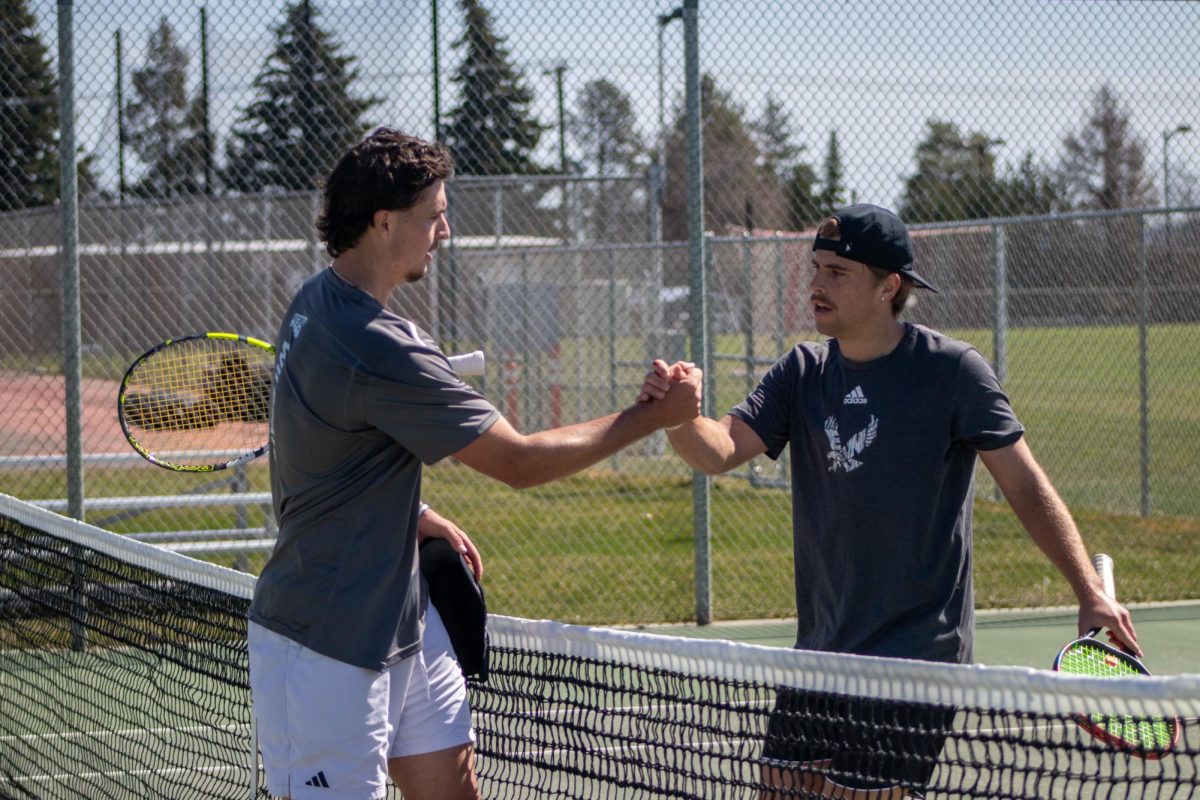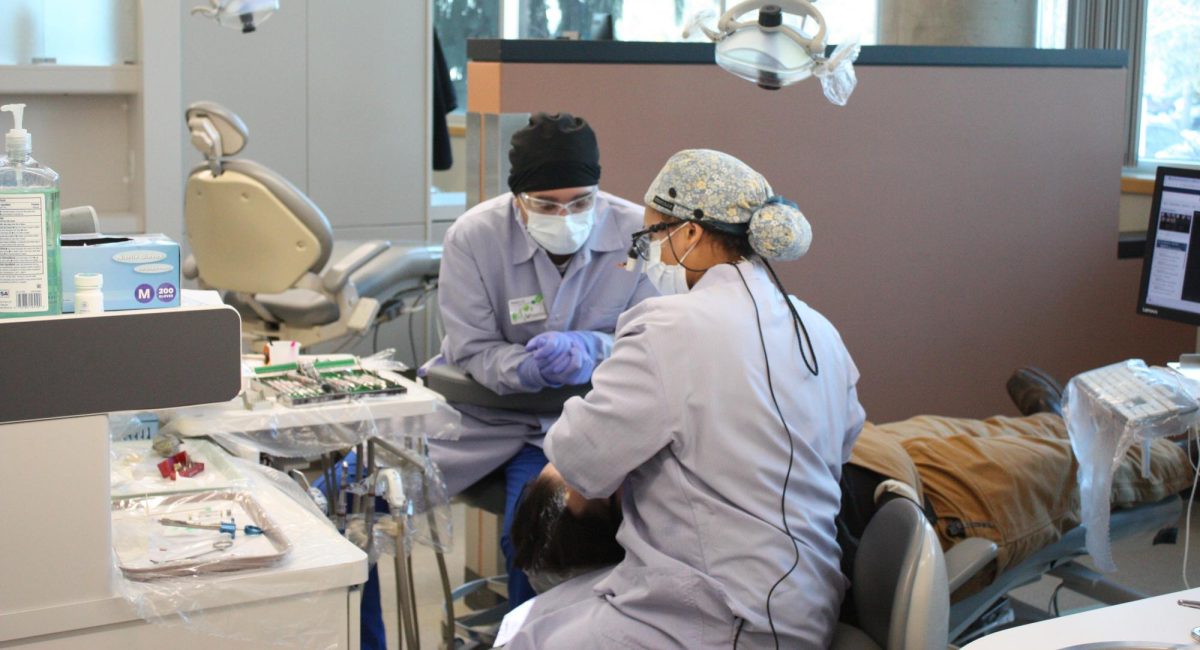Opinion: EWU should form an esports team
As popularity continues to rise, the university needs to capitalize
February 14, 2019
Esports is the name for competitive, organized video gaming, and it’s huge.
In the world of professional esports, the North American team Cloud9 tied for third place in the 2018 League of Legends World Championship. The grand final of the tournament had a peak viewership of over 205 million. For reference, the total audience for the 2018 Super Bowl only reached 106 million.
The prize pool for The International 2018, a tournament for another video game title, Dota 2, was over $25.5 million, which was more than the prize pools for the 2018 golf U.S. Open, Tour de France and Kentucky Derby combined.
As the popularity of esports continues to rise, EWU should create its own team and capitalize on its benefits for both the school and its students.
Nothing new
Competitive gaming has already made its way into colleges across the U.S.
Currently, 133 colleges are members of The National Association of Collegiate Esports: a governing body that facilitates intercollegiate varsity esports matches and tournaments. Two NACE members reside in Washington state and 15 compete in Division I athletic programs.
The founders of Boise State University’s esports program wrote a book titled, “College eSports: What You Need to Know,” to explain how and why it began. In it, director and head coach Dr. Chris Haskell says, “One of the biggest values of eSports at a university is that someone on the outside can look into that university and see that there is a place for them. Whether they’ll be a part of that doesn’t matter, their community is represented there.”
The draw of an esports team could help increase enrollment at EWU as potential students identify with others who share their interests.
Senior Jantz Garza recently returned from competing in Genesis 6: a Super Smash Bros. tournament held in Oakland, California. Garza, who placed 193 out of 1116, began competing to find a better community.
“I’ve always loved playing the game,” Garza said. “I’d always want to find people to play with and stuff. After my first year up here, I realized I needed to find a new friend group and just find something to do to get myself out of the apartment.”
Traditional sports programs help students improve their work ethic and learn time management skills through the intense training involved for competition.
Competitive gaming is no different.
“It’s just, kinda like normal practice you know?” Garza said. “You gotta stay on your grind. You gotta study videos and analysis. I take notes and keep a journal … notes of matchups and what to do against certain characters in certain situations, you know, break down the game. I’ll just load up my game on the CRT and just practice movement.”
In addition to physically playing, Garza selects reading material to improve his mental game.
“I think mental game makes up probably half of most games,” Garza said. “ It’s not about eliminating emotions. It’s about controlling them. It’s stuff that applies to real life too, like school, your job, friends, dating, it applies to everything, and that’s what really fascinates me … That’s what I really like about (Super Smash Bros.) Melee, is that I’ve learned a lot of skills that I can apply to real life, and in using my favorite game as a medium to learn these things, I just think it’s really cool that that’s possible.”
Having an esports team at EWU would allow a larger group of students the chance to learn these skills while representing their university and participating in something larger than themselves. Students on the team may also be more likely to graduate if held to high academic standards similar to traditional college athletes.
Opening opportunities
If esports came to EWU, it would open up opportunities for students to get work experience in related fields.
A team needs players, coaches, managers, broadcasters and media specialists. Eventually there could be an opportunity to earn internship credits for designing promotional materials, scheduling practices and matches, working with and gaining sponsors and reporting on the team. All these roles would help students add relevant experience to their resumes and make EWU a more attractive option for potential students.
Starting a varsity esports team isn’t free. From the equipment, to the facility, all the way to travel costs, adding a new team—especially if scholarships are offered—can represent a significant budget item.
A portion of “College eSports: What You Need to Know,” addresses this issue by suggesting a program model that is self-sustaining.
While there would be an initial cost, the program could sustain itself by renting out its space and equipment, creating a pay-to-play system, acquiring sponsorships, and using other creative ways of making money to run without continual support from the school.
Garza says he used to host a Super Smash Bros. club at EWU, but the club ended once construction on the PUB began and rooms at the school weren’t available for the large blocks of time needed. A dedicated esports facility would certainly fill that need, encourage similar groups to form and enrich the Cheney community.
An esports facility also wouldn’t be just a fad.
Competitive gaming has been around for awhile. The 1980 Space Invaders championship drew over 10,000 players. The Cyberathlete Professional League, an esports league still around today, was founded in 1997. And the World Cyber Games, an international esports competition, held its first main event in 2001 with participants from 37 countries.
Forming an esports team at EWU would benefit the school and its students, while strongly upholding three of the universities mission points: “(To) create and maintain a healthy and safe environment that supports and sustains recruitment, retention, and student success, (to) link academic and co-curricular learning experiences, (and to) foster an inclusive and diverse community where civility and respect for each individual are valued and expected.”
“I get that football is a huge deal and stuff but … especially in this time and age, there’s other things people like to do, and other ways people like to express themselves,” Garza said. “I think if the school gave them opportunities to do that it’d be really cool, and it’d help people out … help them realize their potential … Because like I said, I feel like I’ve grown a lot because of gaming. That’s why it’s so important to me. I can’t imagine there’s no one else at Eastern like that either.”








